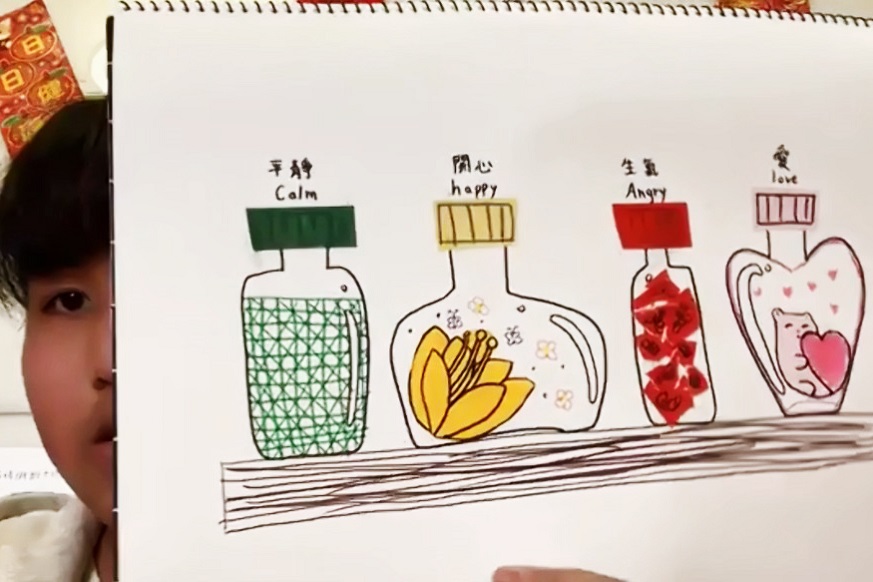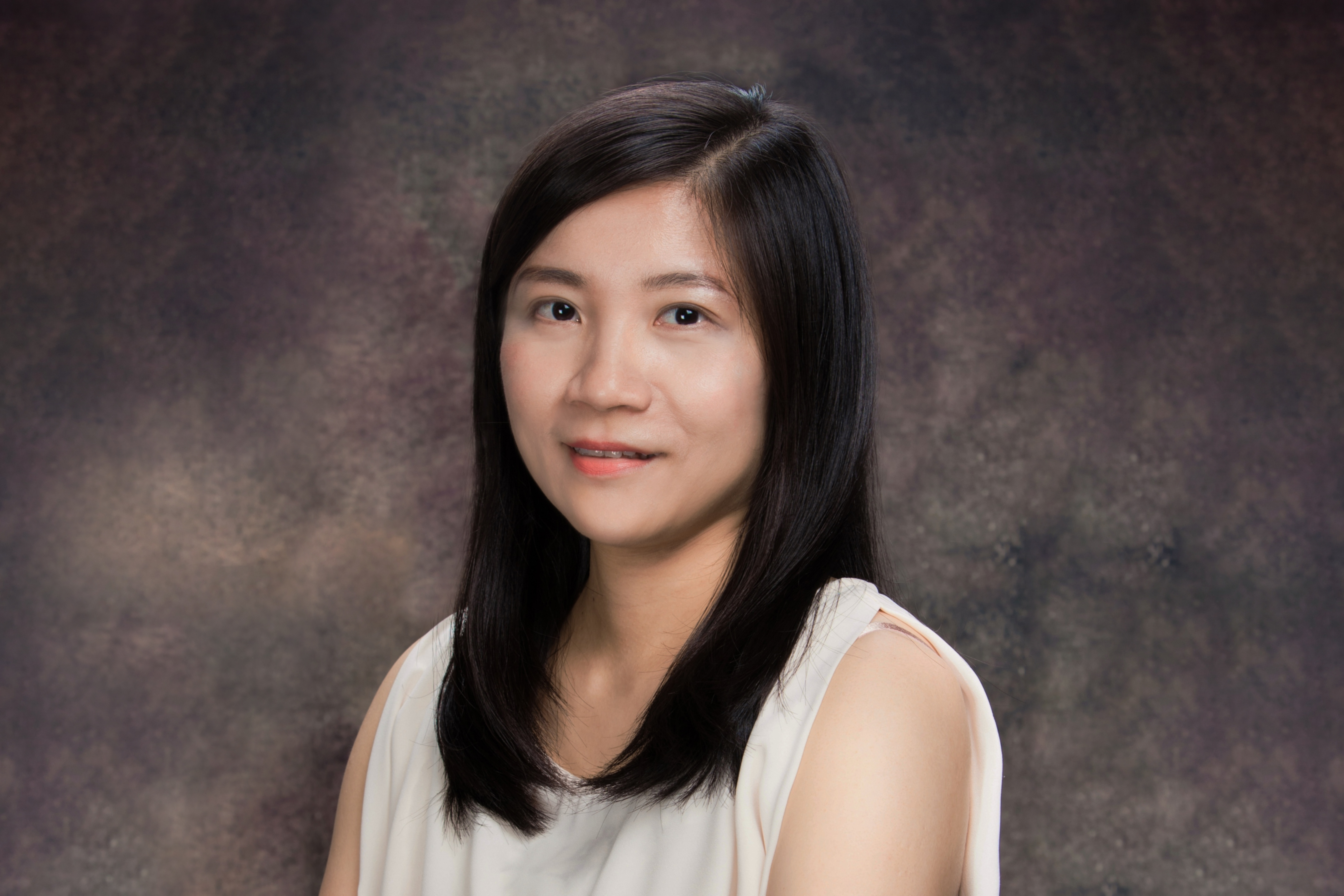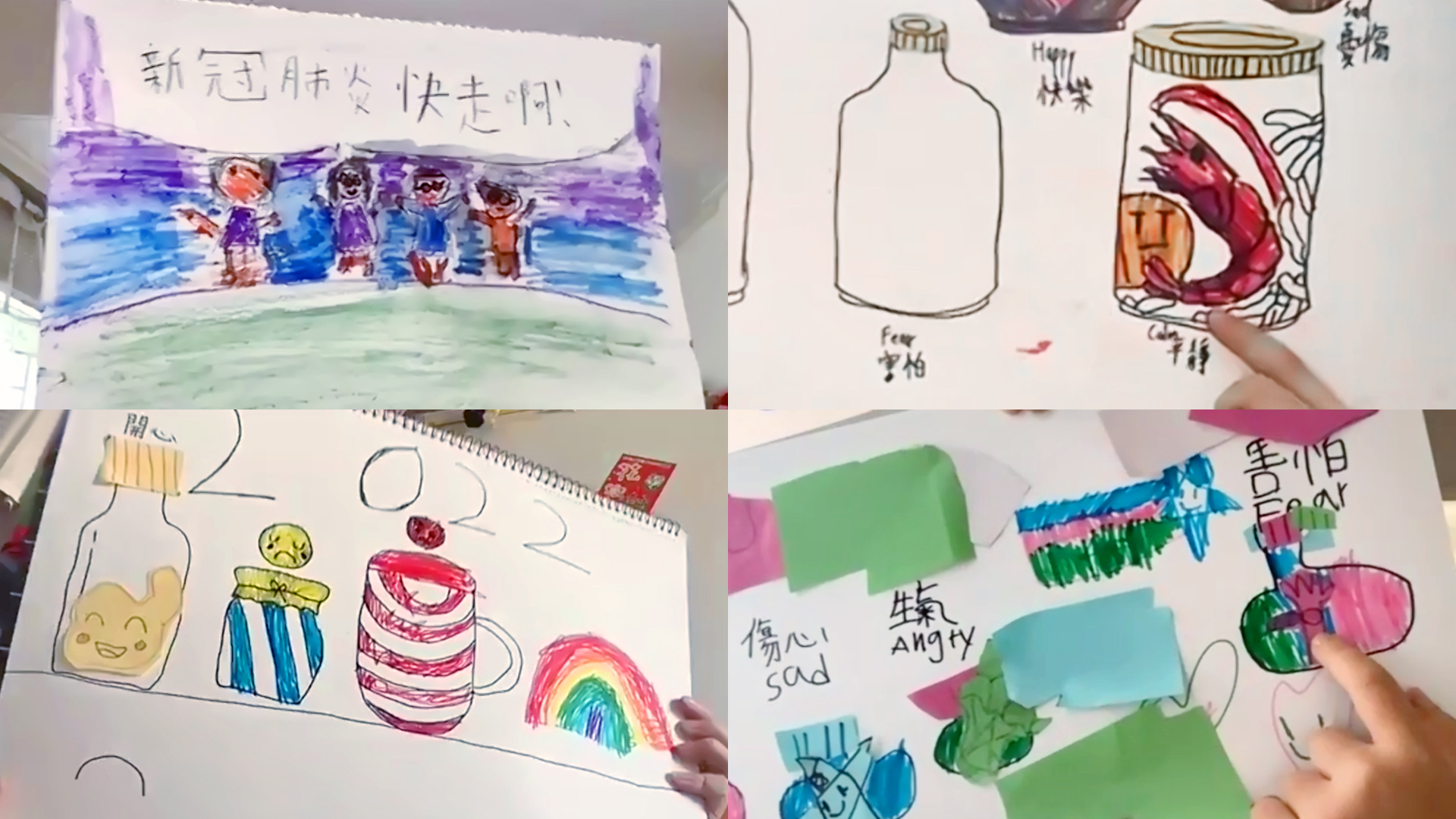Discover HKBU
Online art programme helps children build friendships and resilience during the pandemic
28 Jun 2022
The past two years of the pandemic saw many Hong Kong young children’s learning and social lives being affected. Recently a group of primary school children had an engaging and fruitful experience online, as they took part in a series of art activities organised by the Centre for Child Development (CCD) at HKBU.
For six weeks, the children learnt to explore their emotions, grow their social skills and develop new friendships, and they also created their own artworks to express their feelings about the pandemic. In addition, the free programme provided an opportunity for parents to better understand their children, therefore helping to improve parent-child communication.
Exploring and managing emotions
“During the fifth wave of the COVID-19 outbreak, many school and outdoor activities were halted. Most children spent long periods of time at home and this largely reduced social interaction with peers. Parents also faced a high level of stress as they scrambled to work from home while caring for their children,” says Dr Ann Lui, Director of CCD and Associate Professor of the Department of Education, who is leading the programme.
Recognising the negative impact social isolation may have on children’s development and parent-child relationships, Dr Lui and the team at CCD launched an art programme for six to 12-year-old children from low-income families and children with special educational needs, in order to help them build resilience and improve parent-child communication. Supported by The Hong Kong Jockey Club Charities Trust, the programme consists of two phases, the first of which ran from mid-April to mid-May in 2022 while the second runs from late May to early July, and it will serve about 120 children and 120 parents in total.
To help children develop emotional literacy skills, the project team worked with an art therapist to design six sessions based on different activities. Each participating child received a kit filled with art supplies which was delivered to their home. “Art is a useful medium for children to explore and differentiate their own emotions,” says Dr Lui. In this programme, children learn to use different shapes, lines and colours to express themselves and become more self-aware of their feelings. Once they identify their own emotions, they can learn how to regulate them.
Building resilience amidst uncertainty in the pandemic times
Therapeutic art activities are particularly helpful for children with special educational needs to develop self-awareness and to express themselves. Guided by the art therapist, children who have difficulties in initiating and maintaining interactions with others had the opportunity to connect with their peers and practice their social skills.
The art therapist also intentionally broke down the art activities into manageable chunks to keep the students interested. “Children who have trouble paying attention for long periods of time can focus better on completing tasks which are broken down into smaller steps, and this process can increase their chances of success and let them experience competence,” says Dr Lui. The consistent structure of the sessions additionally gave the participants a sense of certainty as they knew what to expect, and this in turn helped reduce stress.
One of the goals of the programme is to enable the children to feel accepted and in control. “Children are encouraged to make their own choices in terms of what they create and how they make their artworks. This empowers them to express their thoughts and feelings in their own way, so they can feel that they are in control,” says Dr Lui. At a time when the pandemic has added uncertainty to the children’s lives, it has become essential to help them understand their emotions, regulate stress and anxiety, as well as to have them help themselves and others in order to build their resilience.
Improving parent-child communication
As parents play a vital role in children’s growth and development, the project team provides professional support to help parents relieve stress and improve communication with their children.
“Some of the parents are concerned about their children’s transition to in-person classes after months of online schooling, and some are worried about the children’s increased gaming behaviour and use of electronic devices during the prolonged stay at home due to the pandemic,” says Dr Lui. Following each online session, the project team and the art therapist would share some tips on parenting and stress management with the parents. To provide the parents with timely and accessible support, the team also used instant messaging to communicate with the parents, which made it easy for people to get the necessary support without breaking social distancing rules.
Parents who joined the first phase of the programme found the activities to be effective in helping their children stay positive during the pandemic. They also agreed that their children have a better understanding of their emotions and are more willing to share their feelings after taking part in the programme.
One parent who was involved in the programme says, “My child enjoyed the activities very much, and the project team gave me some useful tips for communicating with my child.” Another says, “During the activities, I didn’t pay close attention to what he was creating and just let him make his own choices. He really appreciated the process, and seeing the smile on his face is enough for me.”
Now the programme has entered its second phase, Dr Lui hopes that the children can continue to apply the skills they have learnt to regulate their stress and anxiety levels during the pandemic. By enabling children to express their feelings in a safe and supportive environment, parents can better understand their children’s needs and help them build resilience in face of challenges.


